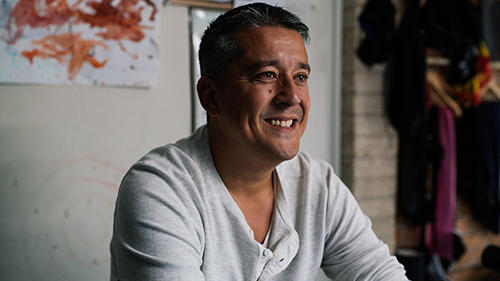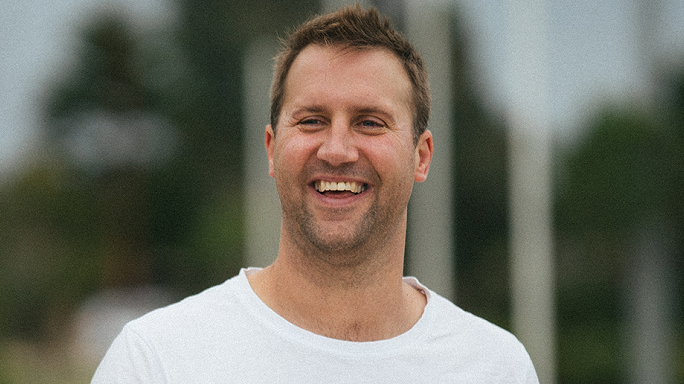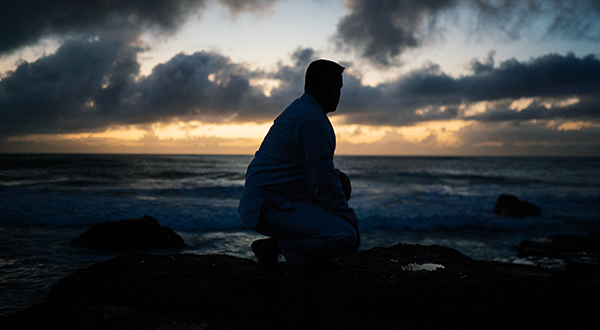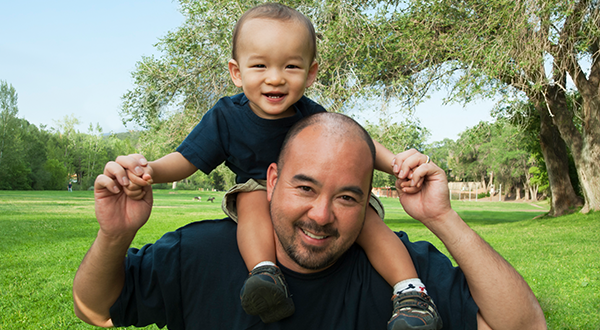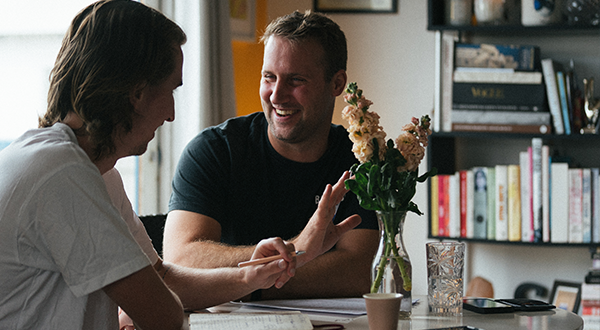Men's mental health
Men are getting better at recognising and seeking support for their mental health, but we know many still do not reach out for help. In fact, only 37% of men and boys reach out for support when they need it.
There are many reasons for this, but one is that they may bottle up their feelings instead of asking for support. For example, they might hesitate to confide in friends and family in case they’re seen as ‘weak’ or ‘unmanly’.
When men handle big problems on their own, they often snowball for the worse. Early support can make all the difference and prevent this from happening.


Information and resources on male mental health
If you’re worried about your mental health — or simply unsure — this page provides useful information, resources, and tools that are relevant to men and boys.
Whether it’s identifying signs of anxiety or depression that are more common in males, or checking in on your friends more often, read on to see what things you can do to stay well.
By better managing your mental health, you may be able to:
- improve your overall quality of life
- increase your ability to support your family and friends, and
- enable you to be your best at home and work each day.

A quick look at male mental health statistics
While Australian men and boys are less likely to have a diagnosed mental health condition than women, they have higher rates of suicide. Death from suicide amongst men is nearly double the national road toll.
- 43% will experience anxiety or depression at some stage in their lives
- 26% admit to delaying seeing their GP for help when they needed it
- Seven out of nine people who die by suicide everyday are men.
Suicide prevention
If you, or someone you know, is having thoughts or feelings about suicide, a safety plan can get you through the toughest moments. It involves setting up a structured plan for when you’re experiencing suicidal thoughts, feelings, distress, or crisis.
Learn more about suicide prevention with Beyond Blue.
Options for urgent help
Emergency Services – If you are seriously injured or know someone who is at risk of harm right now, call Triple Zero (000).
- Lifeline – 24/7 suicide prevention and crisis support. Provides all Australians access to crisis support and suicide prevention services. Call 13 11 14.
- Suicide Call Back Service – Free 24/7 telephone counselling support if you are at risk of or affected by suicide. Delivered by trained counsellors at Lifeline. Call 1300 659 467.
- Beyond Blue – To speak to a counsellor, call 1300 22 4636. To chat online with a counsellor, start a webchat. Both services are private, free, and available 24/7.
The stigma around men’s mental health
When it comes to mental health, men are less likely than women to seek support. This is often because there’s a stigma that prevents them from getting help.
Such social norms around masculinity can be really harmful, especially when it comes to mental health. It can make it difficult to acknowledge when we’re not doing too well, and even harder to reach out for the kinds of support we need when we’re struggling.
Changing men’s mindset towards mental health
Mental health is like any other medical condition, such as a broken leg. Having a plan and thinking about it like any other problem you need to fix at home or at work can help you manage recovery and get better soon.
One easy thing to do is talk to someone you trust. They can be a friend, your partner, a family member, or a colleague. You might share how you’re feeling or any physical changes you’ve noticed, like feeling tired, or not wanting to get out of bed in the morning.
Sometimes just saying things out loud can make a huge difference and lighten the load. You might also be surprised to hear there are others who understand what you’re going through and have previously felt the same way.
Behaviour
Spending time with friends is a great way for men and boys to maintain their mental health. Withdrawing from social activities and spending more time alone is a common warning sign of depression in men.
- not going out anymore
- not getting things done at work/school
- withdrawing from close family and friends
- relying on alcohol and sedatives
not doing usual enjoyable activities
inability to concentrate
Thoughts
Men and boys often keep their thoughts to themselves. This can lead to a warped sense of self when they’d actually benefit from a friend telling them they’re doing a great job. It’s okay to speak to someone – you don’t have to be silent to be strong.
'I’m a failure.'
'It’s my fault.'
'Nothing good ever happens to me.'
'I’m worthless.'
'Life’s not worth living.'
'People would be better off without me.'
Feelings
We all have good days and bad days. The challenge is that men are not often as aware of their feelings compared to women. If you realise you’ve been feeling down for two weeks or more, you may be experiencing early signs of depression.
guilty
irritable
frustrated
lacking in confidence
unhappy
indecisive
disappointed
Physical
Men and boys are likely to notice physical changes before anything else. Those with depression might find it hard to get out of bed each morning, lack motivation for exercise, and eat unusually more or less than before.
tired all the time
sick and run down
headaches and muscle pains
churning gut
sleep problems
loss or change of appetite
significant weight loss or gain
Depression is unlikely to go away on its own. If ignored, it can make it hard for you to cope with day-to-day life. The good news is depression is treatable, and there are simple things you can do to improve. You’ll find what you can do to manage your mental health and wellbeing further down this page.
What are the signs and symptoms of anxiety in men?
All men experience stress at different times in their lives. It could be feeling overwhelmed by a busy work schedule, or struggling with money problems, or feeling nervous before giving a speech at a wedding. This type of ‘normal’ stress is part of life and usually passes when the situation is overcome or goes away.
But anxiety is different. Anxiety is the fear that something terrible is going to happen.
Your worries ‘snowball’ and you see catastrophes in everyday situations
Your worries make you feel panicked, tense, or on edge
Your worries stop you from getting the sleep you need
Your worries prevent you from doing normal things.
Anxiety can be a serious condition, but you don’t need to let it control you. Like depression, anxiety is treatable. If you’re experiencing symptoms of anxiety, it’s important to get support so you can start to get better. Have a chat to your GP or keep reading to explore ways to manage your mental health and wellbeing.
What causes anxiety and depression in men?
It's not easy to say exactly what causes anxiety and depression in men and boys. Reasons can be different for everyone. Triggers may impact some more than others. In some cases, there's no obvious cause at all.
Big life changes can often lead to anxiety or depression. Your risk may be higher if you’re experiencing:
problems with your physical health (such as coming to terms with a new diagnosis)
relationship challenges (the recurring stress and fighting with a loved one)
separation or divorce (coming to terms with a different direction in life)
isolation from friends (a lack of social support that you might usually lean on
issues at work (like conflict with colleagues that impact your sense of worth)
new parenthood (sleep deprivation and a different relationship with your partner)
drug and alcohol use (developing unhealthy coping mechanisms).

What can men do to improve their mental health
Many of us aren’t great at looking after ourselves. Thankfully, there are simple things you can do to maintain your mental health and wellbeing – like doing activities that help you stay healthy and connected to family and friends.

Staying healthy
You can take care of your body by staying physically active, eating healthily, and getting plenty of sleep. Other things like going to the gym, doing some gardening, or even just going for a walk outside can be helpful, too.
Even if you’re not feeling great, it’s important to try to keep doing the things that you usually enjoy, though you might not be enjoying them as much as usual. If you keep active and persist with them, you should eventually start to enjoy them a bit more and start to feel better.

Spending time with friends
Many men experience loneliness. Social pressure to work hard and provide for their families means they might not spend as much time with their friends as they used to.
Time with mates is critical to our wellbeing. You might not always have time for a coffee or beer, but even texting a mate to say g’day can help make you feel more connected. You could also join a local group, like the footy team, to feel part of the community around you.

Having a conversation
If you're going through a tough time, talking about your feelings can be hard. You don't have to go through it alone. Support from friends, family or a health professional can help with your recovery. Reach out to a loved one or see your GP as a first step.
If you're worried about someone, check in with them and let them know you care. This can make a big difference and help you start a potentially life-changing conversation.

Giving back
It can feel great to help others. Contributing your time (through volunteering, for example) is a great way to meet new people and to start new friendships. You can even get involved with Beyond Blue.

Making an action plan
Your action plan can cover a wide range of options and can be as simple as writing down how you’re going to make some positive changes.
This plan could include things like exercise, stress management, and improving your sleep. You might also consider working with a psychologist who can help you to address things like negative thinking and how to deal with hassles in your relationships.
What I've learnt from therapy — Jake's story
Guilt and shame defined Jake’s life for over a decade. He couldn’t see past his own self-loathing.
When he asked for help, everything changed.
From a place of hopelessness, Jake has come to accept that he's worth recovering for.
Suicide prevention
If you, or someone you know, is having thoughts or feelings about suicide, a safety plan can get you through the toughest moments. It involves setting up a structured plan for when you’re experiencing suicidal thoughts, feelings, distress, or crisis.
Anti-depressant medication
For some men, medication might also be helpful, but only especially if your depression or anxiety is severe or hasn't improved with other treatments. Most people using medication report a significant improvement in how they feel. Often, they have more energy to get back to doing the things they used to enjoy.
Before you make any decisions about medication, you must chat with your doctor.
Immediate support
If things are really bad, seek help quickly. Call Lifeline (13 11 14) or the Suicide Call Back Service (1300 659 467) ASAP.




